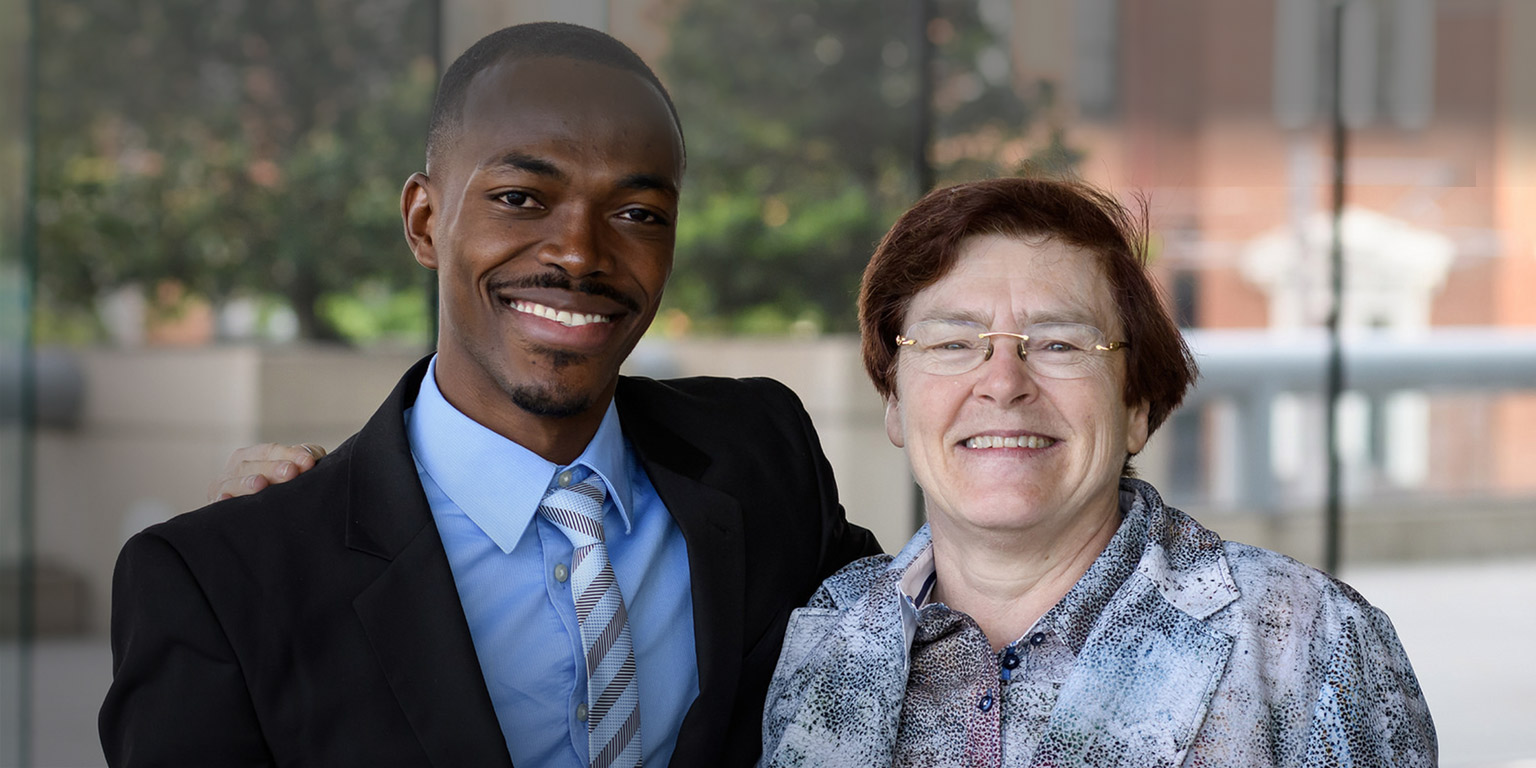Global mentors and mentees talk relationship building
ARVO’s Global Mentorship Program is a virtual program that supports early career members through monthly, guided topics related to non-scientific career development, general work-life balance and steps to actively engage with ARVO. The program pairs Members-in-Training and junior principal investigators with senior-level members in a six-month cohort.
Two past mentor/mentee pairs who successfully completed the program offer lessons learned on how to create a rewarding mentoring relationship.
“I chose an unconventional yet rewarding path with a career spanning academic and industry. I applied to the program to share my experience with young clinician-scientists so they know there are other options to explore with their career,” says mentor Mitchell Brigell, PhD, FARVO, of Aerpio Therapeutics. “In Boston, there is a well-known lack of academic jobs for those who are well-trained, so it is even more important to be aware of the different options they have.”
Brigell was matched with Edmund Tsui, MD, of New York University Langone Medical Center. Tsui emphasized the importance of having a different mentoring experience from his university. “Having a mentor who is well-established in a career different from my own provided a larger picture perspective of the next steps of my own training.”
Another mentee, Talia Kaden, MD, of the New York University, Manhattan Eye Ear and Throat Hospital and Vitreous Retinal Macula Consultants, agrees with Tsui, and says, “As someone who has done most of my training in one city and in a limited number of institutions, it's quite helpful to obtain a broader outlook from someone from another part of the country." Kaden, who was paired with Judy Kim, MD, of the Medical College of Wisconsin, says that her mentor “reinforced the universal norms and goals I should expect of and from my training.”
For a mutually beneficial relationship, both mentors stress the importance of listening to your mentee’s needs. “Learn their goals and objectives and focus on those. Try not to inject your own views or personal opinions,” suggests Brigell.
“Have them envision their future, and soul search for what they need to accomplish their goals,” adds Kim. “As their mentor, you should use that information to determine how you can help.”
From the mentee perspective, Tsui recommends that future participants be involved and dedicated. “You have to be willing to have an open dialogue about your career and personal goals, and from there you can develop a relationship and find the balance between the two.”
In addition to career development assistance, the Global Mentorship Program also seeks to enhance participants' overall experience within ARVO. “It is such a large organization and even though I've been going to the ARVO Annual Meeting for more than half a decade, getting to know someone as senior as my mentor has made the field feel more intimate and accessible,” admits Kaden.
“This program has allowed me to see what senior members personally contribute to the organization,” Tsui says. “One of the most helpful aspects of the program was learning what good characteristics a mentor should have, so I can use those traits when I begin to mentor younger clinicians.”
Tsui’s point is illustrated by Kim’s personal philosophy on the topic. “Mentoring has a ripple effect. What we do in a small way can grow and touch many people beyond our reach,” she says. “Developing Members-in-Training is important for our future. They are the greatest and most precious resources for ARVO and for vision research. To succeed in the future, we have to invest in our young people.”

